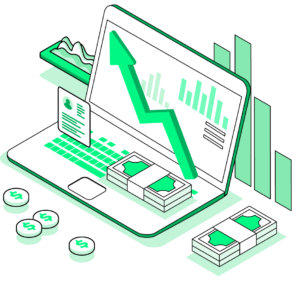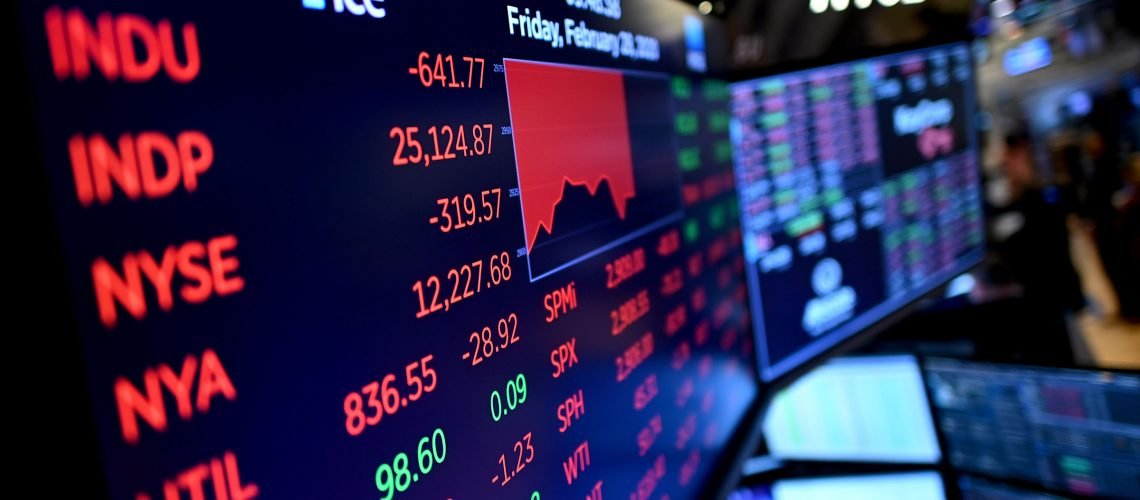Surely you´ve heard “I´m extremely positive in Demo this last month, I already turned to my real account…” a week later that same person burns 100% of their Capital.
To begin, demo accounts are the right way to start. In them we can know:
- Market behavior
- The asset/s we will analyze
- Understand the strategy and its structure
- Build our trading plan
And other important concepts about trading, but this is just the beginning of a long journey of being a profitable and consistent trader.
In the end, they are accounts with fake money, and this takes a great emotional load off traders. A burden that they will have to face when having a real account. That makes them make countless mistakes and they end up losing all or a large amount of their capital.
That’s why I want you to pay attention to the 8 reasons why traders burn their accounts, so when you face them you know how to act and don’t end up being a losing trader.

1. Not setting your risk
A very common mistake. Most traders think they´ll do well, that they´ll always be right, that they know how to read the market perfectly and that´s why they always focus on profits and don´t see the whole landscape.
Remember traders, the market is such a great force that neither you nor anyone else controls it, the market can always do what it wants. That is why we must always but always define our level of risk in each trade that we are going to take.
So once the market goes against our position (something that is completely normal) that movement will significantly affect our capital.
2. Failed liquidate losses
If we already define our risk, that is not enough, it is not only defining it, it is also executing the loss. Sometimes we see a losing trade and we recognize that it will not reach our risk level and will even exceed it, but we do not execute the order and let it continue to run, hoping with “faith” that the market will return.
This is one of the most damaging practices for a trader, so the healthiest thing is to cut losses as quickly as possible and respect our stop loss.
3. Believe your analysis is perfect
The burned-out traders and accounts graveyard are full of stubborn people. Sometimes we believe that our analyzes are so perfect that when the market does not do what we analyze we say “the market is wrong” and we forget that the market is a force greater than us which we cannot control.
That is why everyone who wants to be profitable over time must develop one of the most important skills in trading and that is adaptability. The trader who adapts to the market easily and quickly has a greater probability of staying in this business. You have to be humble, know how to bow your head to the market, and say “Yes, you’re right, you’re right. I follow you”.
4. Focus on the amount of money the operation can generate
A very serious mistake that traders make in their process, is to always think of trades in terms of money.
What you have to do is see the probability of success that you can have based on the structure that the market is generating. In the first instance, trading is a management business and not a production business, how you manage your account (regardless of capital) is what you should focus on.
A good trader and a good manager know that significant earnings are a consequence of very good capital management and operation. For this reason, there are funding tests that focus on rewarding traders who manage capital very well and not those who make the most money in a trade.
5. Revenge
That’s how it is! Trading is endless emotions and among them we sometimes find ourselves wanting to “take revenge on the market” for having taken my money.
Who has not happened that one enters the market, accommodates the stop loss and the take profit and the market takes us out at the last moment and there it returns in favor of the entry?
The desire for revenge with the market is one of the most frequent emotions because we believe that the market is against us, that the market “knew” exactly where my SL was and we take that situation personally and we want to enter to “recover what which is mine ”.
The best we can do in those cases if we are emotionally affected is to get away from the screen, take a breath, calm down and come back, but if that is not enough to close the screen, sometimes the best operation of the day is not to take any operation.
6. Not following the trading plan
Many times, because we want to obtain results in the short term, we do not comply with our trading plan (If you do not know what a trading plan is and its importance, go to this blog ). A plan which you already have, a proven structure that in the long term will allow us to be profitable.
Remember that trading is a marathon and not a 100-meter dash. And to stay in that race and cross the bar we need yes or yes of our trading plan.
7. Standstill
It has happened to you that you turn on the screen, do the analysis, the market creates the appropriate structure for your entry, all the factors are given and for some reason, we remain immobile and do not take the trade?
Believe it or not, this happens to a large number of traders and is due to multiple factors, but the most common is that we over-think or over-analyze the market, we have so much information, sources, we analyze so many graphs and indicators that in the end we are not able to take operations. Therefore, try to make your operation as simple as possible and analyze only what matters or affects your input patterns. If you don’t know how to do it, that’s what trading academies are for, which responsibly teach you and give you a proven, simple, and understandable trading system.
It depends on that system you make it profitable. Remember to keep it simple because overanalysis causes paralysis.
8. Act on intuition
Trading is not an act of faith, trading is a business which needs a method. If you really want to stay in trading for a long time, you cannot make an investment decision with the premises “I believe”, “I have a heartbeat”, “I dreamed last night” or, worst of all, “my instinct as a trader tells me so”.
If you want to be a good trader , you must have an established method in your trading plan, of “how” “when” and “why” to take a trade. In this way, together with Swiset, you will be able to keep the statistics of your methodology and measure its effectiveness, which will allow you to be profitable over time and protect yourself from future losses.
On the contrary, if your investment decisions are based on intuition and instinct. First, you will not be able to keep a detailed record of why you enter and why not, you will not be able to measure its effectiveness and you will not know if you can be profitable over time. Second, by not having a plan when the market goes against it, by that same intuition you are going to wait for it to return, without having defined your risk and you will not cut your losses either.
Therefore, this operation has a great probability of consuming a large part of your capital and thus ends up being one more on the list of account-burning traders.
In conclusion, trading is a highly emotionally charged business and especially when we are operating live, do not allow these 8 situations to happen to you, do it responsibly. For that you can support yourself in your trading academy, they will always be there to help you, guide you and correct you.
With trading you start from less to more, remember what is important in this business, is not to make a thousand or two thousand dollars a day, but to manage your capital. Start with an account in which losses do not affect you and allow you to focus on the long-term approach. Additionally, there are the funding tests that are a great option to operate with more capital, which is not yours, nor the savings of your life, and thus take advantage of your lack of liquidity.
Finally, do not always forget to analyze your trading journal, you know that in Swiset with all the information it gives you about your operations, you can find very interesting patterns to optimize and improve your operations, this allows you to get closer and closer to consistency.





